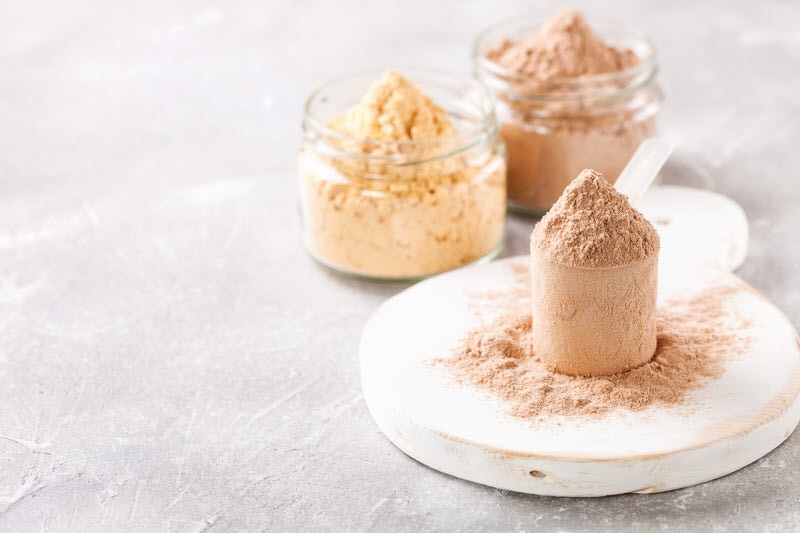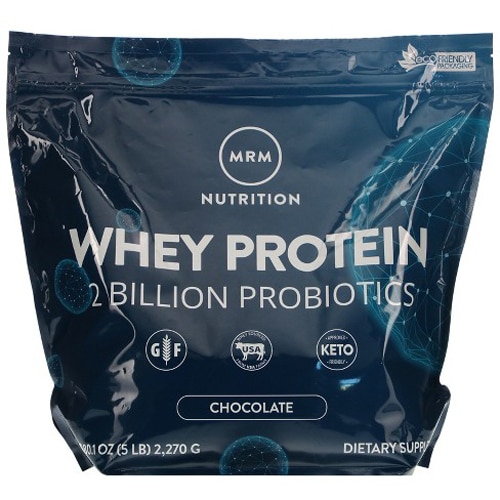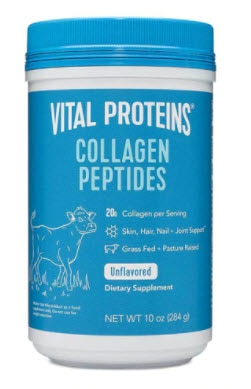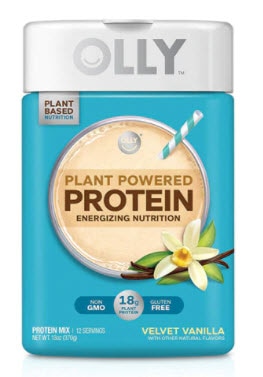 While protein and collagen powders are often seen as interchangeable, in reality, these nutrition supplements have some clear differences that you need to be aware of. Yes, both products are excellent sources of amino acids, organic compounds that form the vital protein macronutrient.
However, before buying one or the other, learn more about the unique benefits and functions of these two powder varieties.
While protein and collagen powders are often seen as interchangeable, in reality, these nutrition supplements have some clear differences that you need to be aware of. Yes, both products are excellent sources of amino acids, organic compounds that form the vital protein macronutrient.
However, before buying one or the other, learn more about the unique benefits and functions of these two powder varieties.
MRM Metabolic Whey Protein Chocolate Description
-
No Artificial Flavors or Sweeteners
-
18 Grams of Complete Protein
-
Hormone Free and BSE Free
-
Fitness • Recovery • Strength • Gluten Free
Special Processing & Blend
Natural Metabolic Whey provides an optimal source of whey protein by combining an ultrafiltered, low temperature processed whey protein concentrate with cross flow microfiltered whey protein isolate. These specialized processing systems ensure a High Biological Value (HBV) whey source in the form of whole proteins in their biologically active state. All Natural Whey is also remarkably high in Branched Chain Amino Acids (BCAAs), which are the most required amino acids needed to replenish muscle stores that are utilized during strenuous exercise.
The Next Generation Protein
The biochemists at MRM® have taken protein supplementation to the next level without the worry of wasting ingested protein. The addition of Digest-ALL® AP helps breakdown long and short chain peptides into smaller, more readily absorbably amino acids for maximum absorption and retention. Digest-ALL® AP helps the body release more amino acids directly into the muscles to increase muscle size, strength and lean body mass.
Added L-Glutamine
Natural Metabolic Whey also contains 1g of L-Glutamine (in addition to naturally occurring L-Glutamic acid) per serving to decrease recovery time following exercise.
Supports Immune Health
Specific characteristics of whey proteins have shown an ability to support immune health. Whey protein contains high amounts of cysteine and other substrates used in the synthesis of Glutathione. Glutathione is a major antioxidant and supports immune health.
No MSG
No Aspartame or Acesulfame K
Add one level scoop (26 grams) of Natural Metabolic Whey to a 3-4oz glass of water, milk, juice or blend with yogurt and fruit. When mixing, add liquid first then powder and stir.
Low Carbohydrate Diet (Weight Management Program): Recommended 1 scoop daily for those trying to increase their dietary protein intake while decreasing intake of carbohydrates.
*These statements have not been evaluated by the Food and Drug Administration. This product is not intended to diagnose, treat, cure, or prevent any disease.
| Amount Per Serving | % Daily Value | |
| Calories | 100 | |
| Total Fat | 1.5 g | 2% |
| Saturated Fat | 1 g | 5% |
| Trans Fat | 0 g | |
| Cholesterol | 55 mg | 18% |
| Sodium | 80 mg | 3% |
| Total Carbohydrate | 4 g | 1% |
| Dietary Fiber | 1 g | 5% |
| Sugars Includes 0g Added Sugars | 1 g | |
| Protein | 18 g | |
| Vitamin D | 0 mcg | 0% |
| Niacin | 6.3 mg | 40% |
| Calcium | 117 mg | 9% |
| Iron | 1 mg | 5% |
| Potassium | 176 mg | 4% |
| MICROBAC™ 16-Strain Blend Upper GI Support [Lactobacillus acidophilus (LA02), Lactobacillus plantarum (LP09), Lactobacillus rhamnosus (LR06), Streptococcus thermophilus (Y08), Lactobacillus casei (LC03), Lactobacillus plantarum (LP01), Lactobacillus rhamnosus (GG), Lactobacillus rhamnosus (LR05), Lactobacillus reuteri (LRE02), Lactobacillus salivarius (CR1328)] Lower GI Support [Bifidobacterium lactis (B501), Bifidobacterium breve (BR03), Bifidobacterium bifidum (BB01), Bifidobacterium longum (BL03), Bifidobacterium infantis (BI02), Bifidobacterium lactis (BA05)] | 2 billion cells | * |
| Typical Amino Acid Profile per 25.5g scoop | ||
| Alanine | 800 mg | |
| Arginine | 400 mg | |
| Aspartic Acid | 1910 mg | |
| Cysteine | 220 mg | |
| Glutamic Acid | 3000 mg | |
| L-Glutamine | 1000 mg | |
| Glycine | 400 mg | |
| Histidine | 250 mg | |
| Isoleucine | 1110 mg | |
| Leucine | 1630 mg | |
| Lysine | 1540 mg | |
| Methionine | 330 mg | |
| Phenylalanine | 530 mg | |
| Proline | 1070 mg | |
| Serine | 910 mg | |
| Threonine | 1040 mg | |
| Tryptophan | 380 mg | |
| Tyrosine | 440 mg | |
| Valine | 1040 mg | |
| Our Whey Protein contains the following supportive immunofactors: 48-52% beta-lactoglobulin 18-22% alpha-lactoglobulin 20-22% glyco-macro-peptide 2% immunoglobulins 0.5-1% lactoferrin | ||





